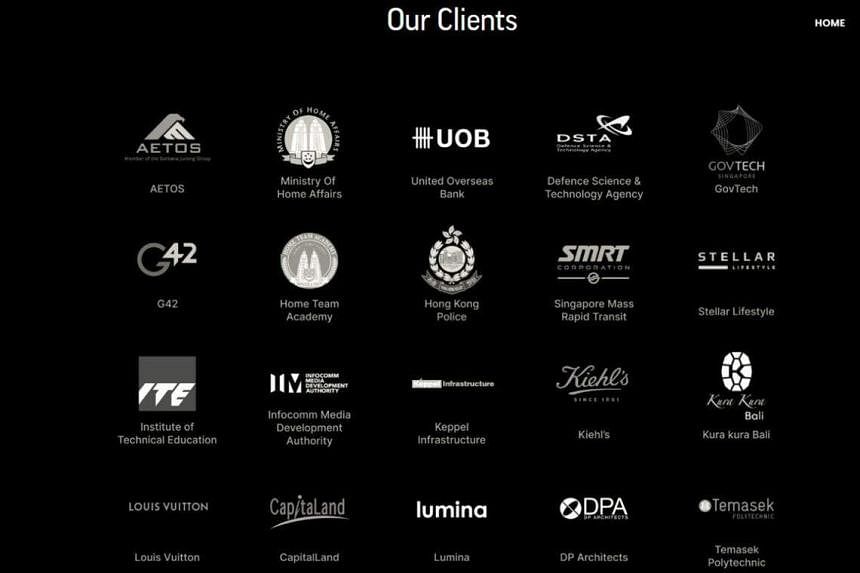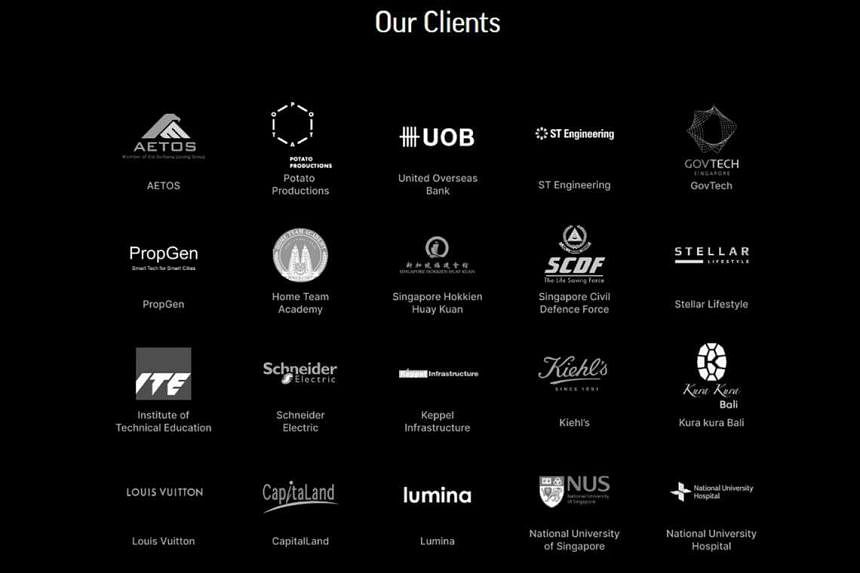CEO of AI start-up Vizzio keeps job despite fake Cambridge doctorate


SINGAPORE – Up-and-coming artificial intelligence (AI) start-up Vizzio Technologies landed in hot water after its chief executive was found to have faked his credentials.
In a Jan 16 expose by online publication Tech in Asia, Vizzio founder and CEO Jon Lee – previously known as Dennis Lee – was said to have forged his doctorate certificate from Cambridge.
Some partner firms contacted by The Straits Times said that they are reconsidering their ties with Vizzio on the back of the developments. A renowned AI scientist has also stepped down from its board.
Meanwhile, several entities whose logos are listed as clients on Vizzio’s website have clarified that they are not customers of the company – or at least not directly.
Started in 2019, the Singapore-based AI firm uses software to make 3D interactive maps of cities and digital objects. It garnered international media attention, including being listed among The Information’s 50 most promising start-ups.
During an interview with Tech In Asia on Jan 12 following investigations it had conducted, Mr Lee confessed to having lied about having a computer science doctorate from Cambridge and admitted that his doctorate certificate was forged.
Mr Lee on Jan 17 apologised for his “personal misstep” on the firm’s website, and added that the board and shareholders decided that he would continue to serve as CEO.
ST’s checks on Jan 19 found that Vizzio’s website had listed more than 20 Singapore government organisations and major companies as clients.
[[nid:659635]]
Temasek Polytechnic (TP), SMRT, the Infocomm Media Development Authority, the Ministry of Home Affairs, and the Hong Kong Police were among the organisations whose logos had been removed since the scandal broke. The client list was whittled down to 17 by 9pm on Jan 22.
The Government Technology Agency (GovTech), whose logo is still on the site, denied being a client.
Its spokesperson told ST: “While Vizzio did a demonstration of its capabilities to GovTech in 2020, GovTech did not proceed to procure any products and is not a current customer of Vizzio.”
When contacted, Mr Lee said that Vizzio had worked with GovTech under a paid proof-of-concept product demonstration. He showed ST a copy of a contract with GovTech dated April 6, 2020, over a video call.
TP should not have been included under Vizzio’s list of clients, said Mr Lee. He said the polytechnic had engaged infrastructure consultancy Surbana Jurong, which worked with Vizzio to develop a digital twin on the polytechnic’s behalf.
A spokesperson for the polytechnic said: “TP is not a direct customer of Vizzio Technologies. It is used by a TP-appointed vendor for support in the vendor’s operational work. TP will look into the matter with its commissioned vendor.”


Other companies linked to Vizzio are also reassessing their ties with the firm.
These include DP Architects and Surbana Jurong, which collaborated with Vizzio under Aetos, a security firm under its group, to build digital renders of facilities for virtual surveillance.
A spokeswoman for Surbana Jurong said: “In light of the recent disclosures, we are conducting a comprehensive evaluation of our arrangements with Vizzio, while continuing to deliver high-quality solutions to our clients.”
“(We) do not condone the fraudulent misrepresentations by Vizzio’s founder Jon Lee,” she added.
[[nid:491961]]
Mr Lee said Vizzio will thoroughly review the content on its website and official marketing pages. “I want to reiterate that I have contacted the majority of customers, partners, board members and investors. I have apologised to them about my judgment lapse, and I will work to rebuild whatever trust has been lost,” he added.
Following Mr Lee’s admission, Vizzio board member Lee Kai-Fu has stepped down.
Dr Lee, a Taiwanese AI scientist and the author of AI 2041: Ten Visions For Our Future, is CEO of Sinovation Ventures, which invested in Vizzio. Singtel Innov8, which invests in start-ups, is another investor.
Mr Lee’s admission adds to a history of fabricated claims. He was in 2001 dropped by software provider Elipva, where he served as its chief technology officer under the name Dennis Lee, after The Business Times revealed that he had falsely claimed to have won awards and fellowships from prestigious universities and foundations.
Elipva’s subsequent probe discovered that he had faked awards in his portfolio, such as a “rare AI award” sponsored by the Association for the Advancement of Artificial Intelligence and Stanford University.
Civil and criminal lawyer Mark Yeo told ST that individuals who forge documents and fabricate their credentials could land themselves in legal trouble if their partners feel that they have been deceived. “Anyone who puts money into the company could take issue with these practices, especially if the credentials formed part of the pitch presented to them,” the director of Fortress Law Corporation added.
Forgery can apply to those who falsify a record with the intent to support any claim or title, to cause a person to enter a contract, according to Section 463 of Singapore’s Penal Code.
Vizzio chairman Abu Bakar Mohd Nor, who is a director of SMRT Corp, on Jan 16 signed off on a statement on the firm’s website that said the board will continue to back Mr Lee as CEO.
Mr Bakar, who also sits on the Board of Trustees of the Singapore Institute of Technology and the Board of Public Utilities Board, wrote: “The board is of the opinion that the technology developed by Vizzio is not dependent on the doctorate. The technology has since proven itself and has been successfully deployed in Singapore and other parts of the world.”
He added: “On the issue of Jon’s time in Elipva until 2001, the board firmly believes that no one should be sanctioned again for what happened 23 years ago when Jon Lee was a 29 year-old technopreneur... We cannot, and will not, take his life’s work away from him as he has paid his dues some 23 years ago as a young man.”
Stellar Lifestyle, which manages retail spaces in SMRT’s rail network, said it stands by Vizzio. Its president, Mr Tony Heng, told ST: “We engaged Vizzio to develop interactive 3D digital map solutions. Vizzio has superior technical solutions that meet our requirements, and we are pleased that they have delivered on their contractual obligations so far.”
In his Jan 17 statement, Mr Lee said: “I had intended to address this matter prior to the report as part of my long-term plan to transition the leadership of our company since the beginning of the Covid-19 pandemic.”
He added: “Misrepresenting my academic qualifications was a grave misjudgment, and I fully acknowledge its seriousness. I want to assure all our stakeholders that this personal misstep does not have a bearing on the integrity or achievements of our company.”
He said Vizzio will implement new measures to preserve the firm’s integrity, without providing further details.
This article was first published in The Straits Times. Permission required for reproduction.